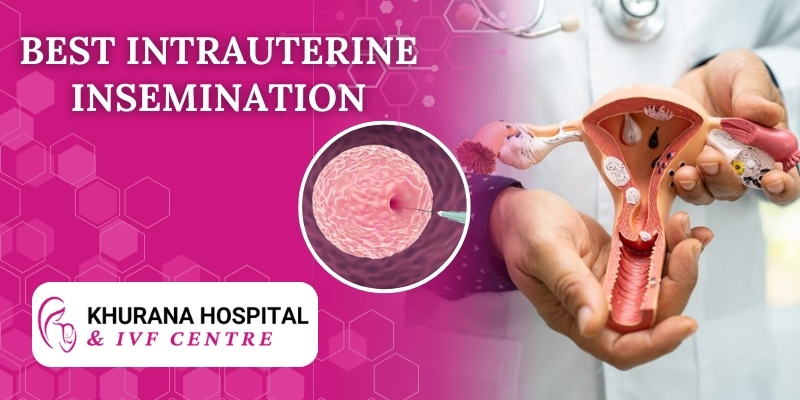Intrauterine Insemination (IUI)
- Home
- Infertility Treatments
- Intrauterine Insemination (IUI)

At Khurana Hospital and IVF Centre, we offer Intrauterine Insemination (IUI) as an effective fertility treatment for couples struggling with infertility. IUI is a less invasive, cost-effective procedure designed to increase the chances of conception by placing sperm directly into the uterus at the time of ovulation. This procedure can be an ideal solution for couples with unexplained infertility, mild male infertility, or other fertility issues.
What is Intrauterine Insemination (IUI)?
Intrauterine Insemination (IUI) is a fertility treatment that involves the direct placement of specially prepared sperm into a woman’s uterus during her fertile window. The goal of IUI is to increase the number of sperm that reach the fallopian tubes, thereby improving the chances of fertilization. The procedure is generally done around the time when ovulation occurs, ensuring the sperm meets the egg for optimal chances of pregnancy.
The IUI Process
At Khurana Hospital and IVF Centre, we perform IUI in a step-by-step process that is monitored by our team of fertility specialists. Here’s how the IUI procedure typically works:
Ovulation Monitoring:
- Before the IUI procedure, the woman’s ovulation cycle is closely monitored using blood tests and ultrasound scans. This helps determine the best time for insemination to maximize the chances of success.
Sperm Collection and Processing:
- The male partner provides a sperm sample, which is then washed and processed in our lab. The sperm is prepared to select the healthiest, most motile sperm to increase the likelihood of successful fertilization.
Insemination:
- Once the sperm is prepared, the doctor will use a thin, flexible catheter to insert the sperm directly into the uterus. This is a quick, painless procedure, and no anesthesia is required. It is performed in the comfort of our clinic, with minimal discomfort for the patient.
Post-Procedural Care:
- After the insemination, the woman may be advised to rest for a short period, and then she can go home. Some light cramping or spotting may occur, which is normal.
Pregnancy Test:
- About 10 to 14 days after the IUI procedure, a blood test will be done to check for pregnancy. If successful, a follow-up ultrasound will confirm the pregnancy and monitor its progress.
Who is a Good Candidate for IUI?
IUI is a suitable treatment for many fertility issues, and it is typically recommended in the following cases:
- Unexplained Infertility: When no clear cause of infertility can be identified in either partner, IUI may be used as an initial treatment option.
- Mild Male Infertility: IUI can help with mild male infertility issues such as low sperm count or motility.
- Ovulation Disorders: Women who have irregular ovulation or other ovulatory disorders may benefit from IUI, especially if ovulation-stimulating medications are used in combination.
- Cervical Issues: Women with cervical mucus problems or other cervical issues that prevent sperm from reaching the uterus can benefit from IUI.
- Same-Sex Couples and Single Women: IUI is also a common fertility treatment for same-sex couples or women who wish to conceive using donor sperm.
